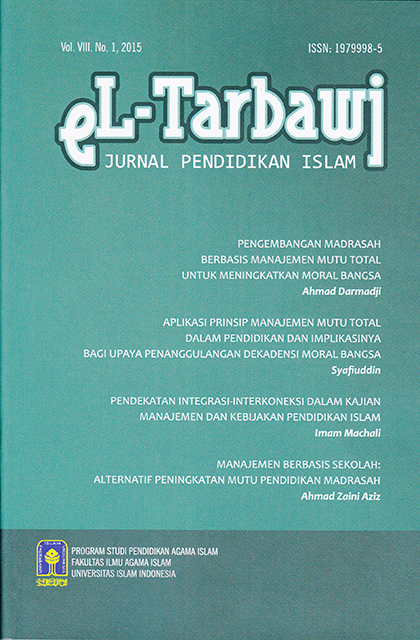Main Article Content
Abstract
This paper examines how Total Quality Management in Islamic School can fulfill market demands of quality graduates using Madrasah Aliyah (MA) Al-Hikmah Karangmojo Gunung Kidul Yogyakarta as a case study. Based on the research’s findings, it will show that: (1) in terms of service management, MA al-Hikmah provides service to the customers –the students- by not charging them any fees for educational operational costs, accommodation, health assurance, and educational facilities such as books and courses; (2) in terms of educational process management, MA Al-Hikmah’s teachers teach students using various teaching methods and strategies. Teaching processes are conducted both indoor and outdoor. MA Al-Hikmah also has a teaching team to handle the 12th graders in extra classes so that they can pass the national examination; (3) in terms of product management, MA Al-Hikmah continuously improves its educational quality through a variety of ways. MA Al-Hikmah also has a special team to maintain students’ achievements morally and academically. MA Al-Hikmah also makes some efforts to provide its graduates with opportunities to get scholarships in the higher education and job vacancies to meet the market needs of quality graduates.
Article Details
Authors retain copyright and grant the journal right of first publication with the work simultaneously licensed under a Creative Commons Attribution (CC-BY-SA) 4.0 License that allows others to share the work with an acknowledgment of the work’s authorship and initial publication in this journal.
